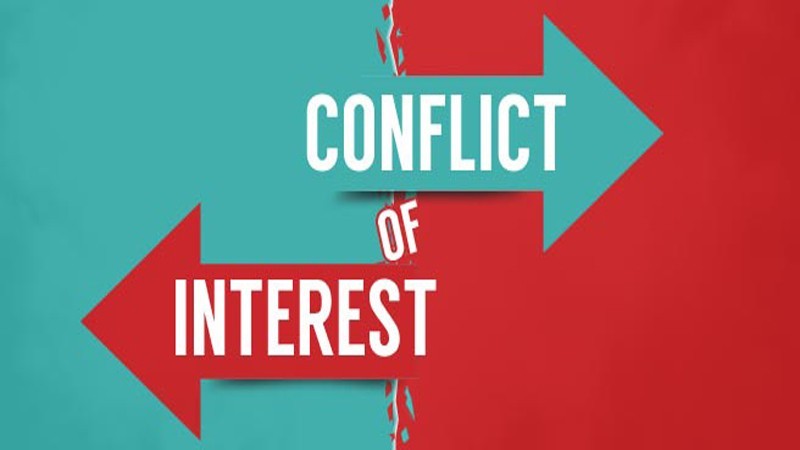Real Estate

Diversity and Inclusion in the Workplace Specialists.
Diversity Australia is the leading National and International diversity and inclusion professional services firm specialising in DE&I consulting and training, including unconscious bias, inclusive leadership, psychological safety, respect@work and cultural change.
We are passionate about building strategies for all organisations to promote a culture of inclusion and diversity in the workplace, that supports a high performing workforce, setting a new standard for diversity, equity and inclusion globally.

Diversity, Equity & Inclusion
Your Resources for Becoming a Leader in Workplace Inclusion and Diversity
Diversity Australia offers its strengths of developing effective diversity and inclusive culture strategies that have a dual focus on changing practices and influencing behaviour at an individual , team and organisational level.
Our people bring hands on experience with our key clients to create more diverse and inclusion-focussed workplaces, increasing awareness of leadership behaviours and the deeply held assumptions and biases which exist in most businesses today.
Services
Diversity, equity and inclusion by design, not by default
Building Organsational Strengths
It’s not enough to just talk about change; we must act to change. We must build inclusive organisations by design, not default.
Attracting the Best Talent
Uniting the Strengths of a D&I Culture to Build Performance
To unite everyone behind one vision. Then support the right team mindset and behaviors with the right structure, processes and diversity program to make change happen.
Build diversity, equity and inclusion at work
Embedding diversity, equity and inclusion in your place of work is a journey. Start this journey by understanding your organization’s DE&I maturity.
DIVERSITY, EQUITY & INCLUSION
Featured Programs

Diversity and Inclusion Program

Unconscious Bias & Inclusion Program

Respect at Work Program

Psychological Safety at Work

Cultural Sensitivity and Awareness Program

Inclusive Leadership Program

Inclusive Language Program

Disability Awareness Program
Our Offices
Public and Private Sectors
Membership
Training
Build diversity, equity and inclusion at your workplace
OUR CLIENTS
TRAINING AND SURVEYS
NEWSLETTER
DIVERSITY, EQUITY & INCLUSION
Global Research & Articles
Psychosocial Hazards in the Workplace – An Employer’s Guide
Can you imagine a workplace where employees dread coming to work each day, not because of the tasks at hand, but due to the psychological toll their job takes on them?Unfortunately, this scenario is all too common in today's fast-paced, high-pressure work...
The Conflicting Interests of Legal and Audit Firms in Respect at Work and Psychological Safety at Work Training
In an era where workplace culture is increasingly recognized as both a driver of success and a potential legal minefield, the need for effective training in Respect at Work, Psychological Safety, and whistleblowing cannot be overstated. Recent legal reforms aim to...
Free and Equal Conference – Sisonke Msimang Speaker
We are proud to have one of our Diversity Australia team at the 2024 Free and Equal Conference as a speaker. Free + Equal Human Rights Conference | Australian Human Rights Commission Sisonke Msimang is a distinguished facilitator and communications expert dedicated...
What expertise and experience does Diversity Australia have, and why would I trust you?
Click to open
Diversity Australia brings to you a depth of expertise and qualifications across over 10 highly experienced consultants.
Our CEO, Steven Asnicar has extensive experience as a CEO and senior executive across multiple industries including energy, health care, transport and logistics, as well as owning his own successful executive recruitment firms Urban Executive and Executive Search Global and registered training organisation Urban E-Learning.
Steven holds an Executive MBA from Bond University, is a qualified RABQSA Auditor, and is a thought leader on executive diversity, equity and inclusion, with over 26,000 followers on his LinkedIn profile.
Dr. Cate Borness, with over two decades of experience, is a renowned authority in the realm of Diversity and Inclusion. Her passion for creating inclusive environments has led her to collaborate with a wide array of organisations, helping them enhance their diversity practices and foster a culture of belonging.
Holding both a Master’s Degree, and a PhD in Organisational Psychology, Cate was previously Director of Human Capital with Deloitte Australia, and is a highly sought-after speaker, facilitator, and executive assessment consultant-practitioner.
Robert Davey is qualified with a Bachelor of Arts in Organisational Psychology from UQ, and an MBA, and previously has held the positions of General Manager Human Resources at Arrow Energy, General Manager at Sunwater, Executive Director of Organisational Transformation and Capability at Department of Education and Training (Queensland), and People & Culture Manager – Australia Pacific LNG for Origin Energy.
Ms. Fernando Afonso MAPS, FCOPS, GAICD holds a BA, Hons, Psychology, and a Master’s in Organisational Psychology, both from UNSW and previously was Head of Organisation and Talent Development for GE Australia & New Zealand.
Beth O’Leary has an extensive career history as an executive coach and was previously Head of Human Resources for Network 10, and prior to that was Human Resource Director for Nielsen, and holds a Master’s Degree in Social and Organisational Leadership, from Charles Sturt University.
Andrew Watt LLB, a long-serving public service lawyer, has been involved in facilitating and creating content and instructional guidance for training across legal, compliance, and administrative areas throughout his time with Diversity Australia.
Kate Lorenz, is an established executive coach and businesswoman with almost 20 years of hands-on management experience in China, Hong Kong, Australia, and the APAC region. As well as a proven track record in leading and managing a customer service business, Kate has over 10 years of developing and delivering training and coaching in creating an inclusive leadership team, team management, and cultural diversity in the workplace specialising in intercultural team integration. Kate has served as Intercultural Trainer and Coach with IOR Global Services since 2015, and holds a Bachelor’s Degree in History and Politics as well as several senior coaching certifications.
The above personnel are highlighted from our full team here at Diversity Australia. All our training is positively focussed on the ethical and equity-related benefits of inclusive culture, researched and created by experienced subject matter experts, and benchmarked across our diverse senior team, to bring an optimised student and . Our consulting and auditing activities are aligned to both the new Global ISO D&I Standards, the Australian Inclusive Service Standards (ISS), and the ASX Corporate Governance Council’s Corporate Governance Principles and Recommendations for DE and I requirements for Corporations in Australia.
The above personnel are highlighted from our full team here at Diversity Australia. All our training is researched and created by experienced subject matter experts, and benchmarked across our diverse senior team. Our consulting and auditing activities are aligned to both the new Global ISO Diversity and Inclusion Standards, the Australian Inclusive Service Standards (ISS), and the ASX Corporate Governance Council’s Corporate Governance Principles and Recommendations for Diversity and Inclusion requirements for Corporations in Australia.
Common Questions & Answers About Diversity and Inclusion in the Workplace, That HR Managers and CEO’s Want to Know.
1. What are the legal requirements for diversity and inclusion in Australian workplaces?
In Australia, employers must comply with anti-discrimination laws at both the federal and state/territory levels. Key legislation includes the Age Discrimination Act 2004, Disability Discrimination Act 1992, Racial Discrimination Act 1975, Sex Discrimination Act 1984, and Fair Work Act 2009. These laws prohibit discrimination based on different groups of individuals with protected attributes such as race, ethnicity, colour, sex, sexual orientation, age, physical or mental disability, marital status, family or carer’s responsibilities, pregnancy, religion, political opinion, national extraction, or social origin.
Employers must ensure their policies, practices, and work environment comply with these laws and promote equality and fairness of opportunity. Failure to do so can result in legal action and reputational damage. The Australian Human Rights Commission provides guidance on best practices for fostering an inclusive workplace where employees and team members feel comfortable at work.
2. How can we ensure compliance with the Australian Human Rights Commission's standards?
To comply with the Australian Human Rights Commission’s standards on diversity and inclusion, organisations should take a comprehensive approach. This includes conducting regular audits and assessments to identify potential areas of non-compliance, implementing robust policies and procedures that align with the standards, providing comprehensive training to all employees on diversity and inclusion, and establishing clear reporting and resolution mechanisms for any incidents or concerns. Organisations are encouraged to actively engage with the Commission and seek guidance on best practices for promoting an inclusive culture.
3. What is the "Positive Duty" responsibility about?
The “Positive Duty” is a concept introduced by the Australian Human Rights Commission that encourages organisations to take proactive steps to prevent discrimination and promote inclusion in the workplace. It involves identifying and eliminating barriers to equal participation, fostering an inclusive environment, and taking reasonable and proportionate measures to accommodate the needs of employees from diverse backgrounds.
This legal responsibility extends beyond simply avoiding discrimination and requires organisations to actively create a culture of inclusion that values and supports diversity among its workforce. Examples of positive duty actions include implementing diversity and inclusion training, reviewing and updating policies and procedures, and promoting a culture of respect. Fulfilling the positive duty helps create a safer and more inclusive workplace for all employees.
4. What strategies can we implement to improve diversity, equity and inclusion in recruitment and promotion processes?
To improve diversity in recruitment and promotion, employers should review their current practices for any biases or barriers. This may involve using diverse interview panels, removing identifying information from resumes, setting diversity targets, and a range of other diversity efforts. Employers should also consider implementing inclusive recruitment strategies such as partnering with community organisations, using diverse job boards, and offering flexible working arrangements.
In promotion processes, ensure that selection criteria are objective and clearly communicated, and provide training and development opportunities for underrepresented groups. Regularly collecting and analysing data on the diversity of candidates and successful applicants can help identify areas for improvement.
5. How should we handle reports of discrimination or harassment in the workplace?
Reports of discrimination or harassment in the workplace should be taken seriously and handled promptly and confidentially. Employers should have clear policies and procedures in place for reporting and investigating incidents, which should be communicated to all staff.
When a report is received, the employer should conduct a thorough and impartial investigation, interviewing relevant parties and reviewing any evidence. If the investigation substantiates the complaint, appropriate disciplinary action should be taken, which may include termination of employment.
Employers should also provide support and assistance to the complainant, such as counselling services or changes to working arrangements. Regular training on workplace behaviour standards can help prevent incidents from occurring.
6. What are options for training staff on diversity and inclusion?
Diversity Australia offers a range of training options to suit the needs of different organisations. These include face-to-face workshops, virtual instructor-led sessions, and self-paced online courses covering topics like unconscious bias, inclusive leadership, cultural sensitivity, psychological safety, respect at work, psycho-social hazards at work (for leaders), active bystander training, disability awareness, and more.
Training should be tailored to the specific needs and challenges of the organisation, considering factors such as industry, size, and workforce demographics. Regular refresher training can help reinforce key messages and ensure that diversity and inclusion remain a priority. Investing in high-quality, comprehensive training is crucial for creating a truly inclusive workplace culture.
7. How can we support underrepresented groups within our company?
Supporting underrepresented groups within a company requires a multi-faceted approach. This may include establishing employee resource groups (ERG’s) or networks for specific communities, such as women, LGBTQ+ individuals, or people with disabilities. These groups can provide support, mentorship, and advocacy for their members.
Employers should also ensure that their policies and practices are inclusive and equitable, such as offering parental leave, flexible working arrangements, and accessible facilities. Providing targeted training and development opportunities can help underrepresented groups advance their careers and move into leadership roles. Regularly seeking feedback and input from underrepresented groups can help identify areas for improvement and ensure all employees feel valued and respected.
8. What are the benefits of diversity and inclusion in the workplace culture?
There are numerous benefits of diversity, equity & inclusion to organisations. In fact, according to research, there is a strong business case for diversity, with companies in the top quartile for gender diversity being 25 percent more likely to outperform national median in terms of profitability within their respective industries, while those in the top quartile for ethnic and cultural diversity have a 36 percent likelihood of financial outperformance – ie. above-average profitability.
Companies with higher levels of diversity were a remarkable 19 percent more likely than companies with less diversity, to have higher revenue, thus also demonstrating the important link between companies with DE&I-aware executive teams and the likelihood of more holistic success, even including financial metrics – not that these should be the major focus of developing this kind of culture.
Diverse and inclusive workforces also foster increased creativity, innovation, and problem-solving abilities, as well as improved employee engagement and retention. Additionally, a strong diversity and inclusion culture can enhance an organisation’s reputation, attract diverse talent, and better position it to understand and serve diverse customer bases.
Summary: Companies that implement diversity are more likely to outperform companies that don’t!
9. What are the risks of not adhering to DE&I best practices?
Failing to prioritise diversity, equity, and inclusion (DE&I) can have serious consequences for organisations. Companies that do not adhere to DE&I best practices may face legal action and financial penalties for discrimination or harassment in the workplace. They may also suffer reputational damage, leading to loss of customers, partners, and investors.
A lack of diversity can limit an organisation’s ability to innovate, adapt, and compete in an increasingly global and diverse marketplace. Non-inclusive workplace cultures can lead to higher turnover rates, as employees from underrepresented groups may feel unsupported or marginalised. Overall, neglecting DE&I can have significant financial, legal, and reputational risks for organisations.
10. How can we integrate diversity and inclusion into our corporate strategy?
Integrating diversity and inclusion into corporate strategy requires a holistic and long-term approach. This starts with securing buy-in and commitment from senior leadership, who should model inclusive behaviours and champion diversity initiatives. Diversity and inclusion should be embedded into all aspects of the business, from recruitment and talent management to product development and marketing. Setting specific, measurable diversity targets and regularly reporting on progress can help hold the organisation accountable.
Incorporating diversity and inclusion into performance metrics and reward systems can also incentivise employees to prioritise these values in their work. Continuously seeking feedback and input from diverse stakeholders, both internal and external, can help ensure that the strategy remains relevant and effective over time.
11. What are the specific definitions of diversity, versus, equity, versus inclusion?
Defining Diversity, Equity, and Inclusion in as these terms relate to organisational workplaces.
Diversity, equity, and inclusion (DEI) are distinct but interconnected concepts crucial for creating a fair and inclusive workplace in Australian organisations, and the relationship between diversity, and both equity and inclusion is important to understand.
- Diversity refers to the presence of differences in age, gender, race, ethnicity (ethnic diversity), cultural background, religion, sexual orientation, disability, thought, skills, and experiences.
- Equity involves providing fair opportunities and resources based on individual needs and circumstances, ensuring everyone has the support to succeed.
- Inclusion is the practice of creating a culture where all employees feel valued, respected, and able to fully participate without fear of discrimination or bias. Inclusion matters because it enables the implementation of both diversity and the principle of equity into an organisation’s culture, and increases the feeling of belonging at work, for all employees.
By understanding and promoting DEI, organisations can foster innovative, engaging, and successful workplaces that reflect the richness of our society.



